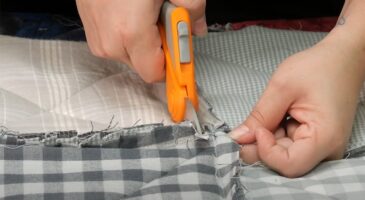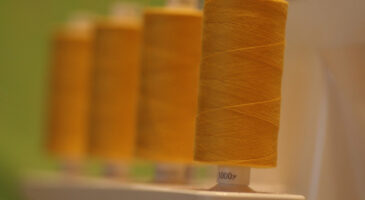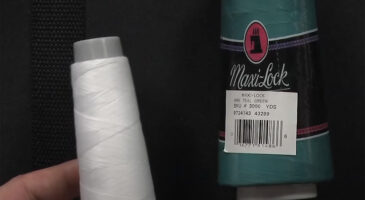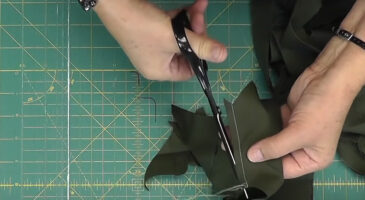Nowadays, it is becoming a norm for seamsters to wash fabrics before they cut and sew them into the desired style or design. If you ask them the rationale behind their action, they will give you two reasons: to pre-shrink the fabric and to remove the chemicals and dirt that may have accumulated within the fabric fiber during the production stage. No matter how many seamsters you ask, their response is always the same.
The uniformity in their responses often makes it difficult for people to think otherwise. This has a similar effect on quilters, too, and they would often ask questions like, should I prewash quilting fabric? Does quilting fabric need to be prewashed? The answers to these questions will be provided in this article.
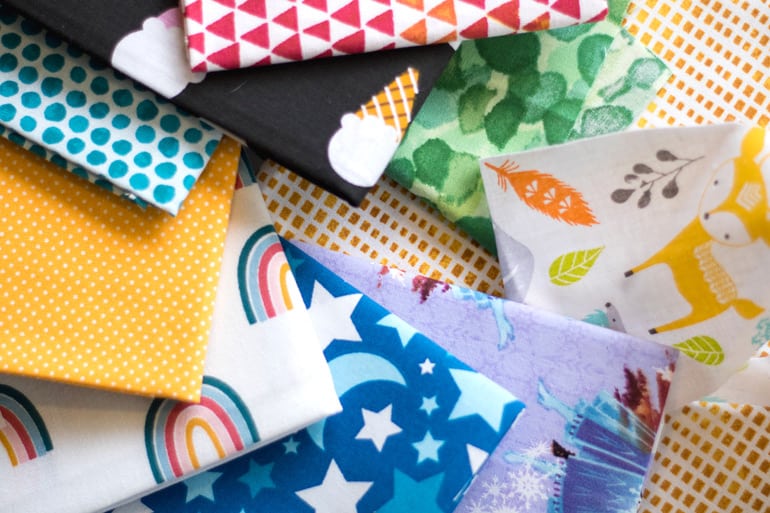
Can I prewash quilting fabric?
Yes, you should prewash quilting fabrics. Just like most seamsters would rightly justify prewashing regular fabrics by saying it is a necessary step to get rid of chemicals from the fabric, quilting fabrics are also treated with chemicals from factories, and since these chemicals often give out offensive odors, you may also have to prewash the fabric to get rid of the chemical and the accompanying odor altogether.
Another reason why you should consider prewashing your quilting fabric is that most fabrics made with natural fibers like cotton shrink after wash, and since the most common types of quilting fabrics are made of 100% fabrics, it will also be a matter of necessity to prewash them so that you can work with accurate measurement.
Do I need to prewash fabric before sewing?
No, you do not need to prewash fabric before sewing them. However, you will benefit from doing so. Whether you are working on a quilting or sewing project, you may decide not to wash your fabric before starting the project.
To prevent a shortage of measurement or possible effect of exposure to offensive odor, most professionals would often recommend that you wash them.
With that said, you should also know that some situations may make it mandatory for you to prewash your fabric, especially when you are working on a quilting project. You will learn more about this as you keep on reading this article.
Do quilters prewash fabrics?
Yes, quilters prewash fabrics. Before I move further, you should know one thing; whether or not to prewash fabrics it’s only a matter of choice. While some quilters prefer to prewash their fabric before they start their project, some others believe it’s a waste of time. But it would be best to wash the fabric before use to take advantage of the benefit that comes with doing so.
How to prewash quilting fabric
It is very easy to prewash quilting fabrics. All you have to do is put them in the washing machine and wash them in cool water with a mild detergent the regular way. After a complete wash cycle, rinse them and dry them in the dryer under low heat.
Once the fabric dries, remove them immediately to avoid wrinkles. You can press the fabric afterward, or you can skip the step until you are about to commence the project.
How to prewash 100 cotton fabric
Pre-washing the fabric
The general rule to prewashing a fabric made of 100% fabric is that it should be prewashed as you would launder the finished product, i.e., if you will be washing the finished garment or blanket in the washing machine, it should be prewashed in a washing machine too. And if laundry will be done by hand for the finished project, it should also be prewashed by hand.
Finally, when you are about to wash cotton, wash them with a mild detergent in a warm machine wash.
Drying a prewashed 100% cotton fabric
After prewashing the fabric, it is best to air dry the fabric by hanging them under a shade to prevent them from fading. Although you can also dry them in a dryer, the dryer tends to over-shrink fabrics due to the heat, so if you are going to be drying your cotton in the dryer, it has to be set to the lowest heat.
Why do fabrics say do not prewash?
1. To avoid change in the precut size
When you prewash fabric before use, the precut may unravel or get distorted and, as a result, may no longer be the same length as the standard size because it has shrunk after being prewashed.
2. To prevent fraying
After prewashing, most fabric frays which is why some professionals would always advise against prewashing. Although there are sure ways, you can prevent fraying after prewashing. The method commonly used by professionals include; pinking shears or stitching zigzags at the raw edges of the fabric before prewashing.
3. To take advantage of the crispness of the fabric
Fabrics are treated with chemicals from factories to make them stiff and give them that crispy appearance. It is easier to piece fabrics in this condition. Hence instead of prewashing the fabric, why don’t you just continue with the project immediately so that you can utilize the natural crispness of the fabric.
Should I wash the quilt top before quilting?
Yes, you should wash the quilt on top of your quilting before quilting. It is no more news that cotton, which is used for most quilting projects, absorbs dye easily and is susceptible to shrinking. Therefore, it will be advisable to prewash them to avoid surprises after washing the final project.
How do I prepare fabric for quilting?
- Prewash the quilting fabric if you believe it is a necessary step. If you believe otherwise, proceed to the next step.
- Cut the fabric into manageable sizes. To do this, cut a half-yard piece of the fabric together with the fold at the top. This should give you two 18 by 21 pieces of fabric.
- Get rid of wrinkles from the fabric by ironing and starching the fabric. This will get you a more accurate result.
- Start cutting the fabric.
Is prewashing fabric necessary?
No, it is not necessary to prewash fabric whether you are using them for quilting or sewing project. However, some situations may require you to prewash them. In this kind of situation, it will become absolutely necessary to do so. Check below for details.
- When you are piecing dark fabric like red with a white background. In this case, you need to prewash them to test whether or not they are going to bleed.
- When you will be mixing unwashed new fabric with an old fabric that has already been washed.
- When you are sensitive to chemicals.
